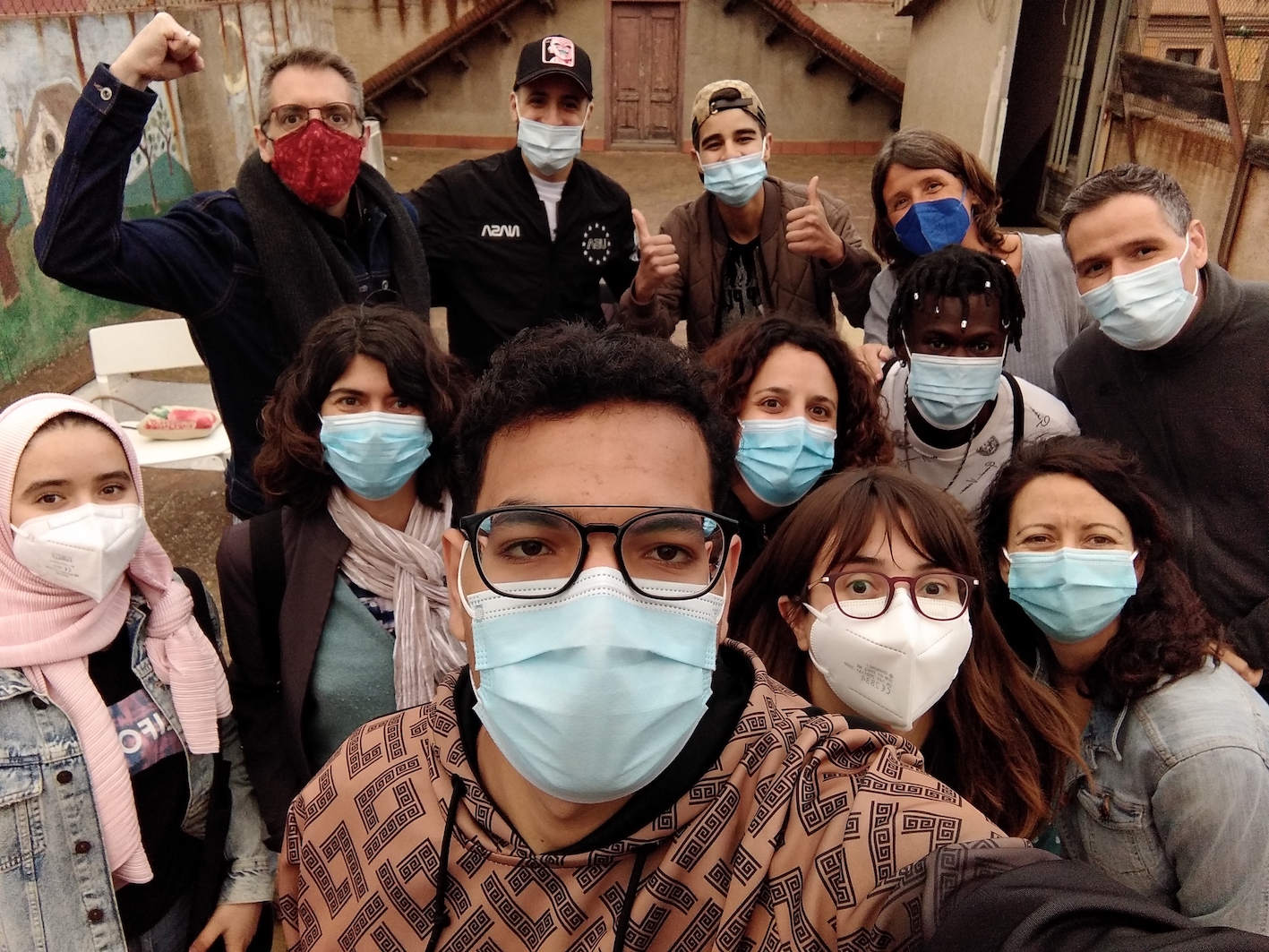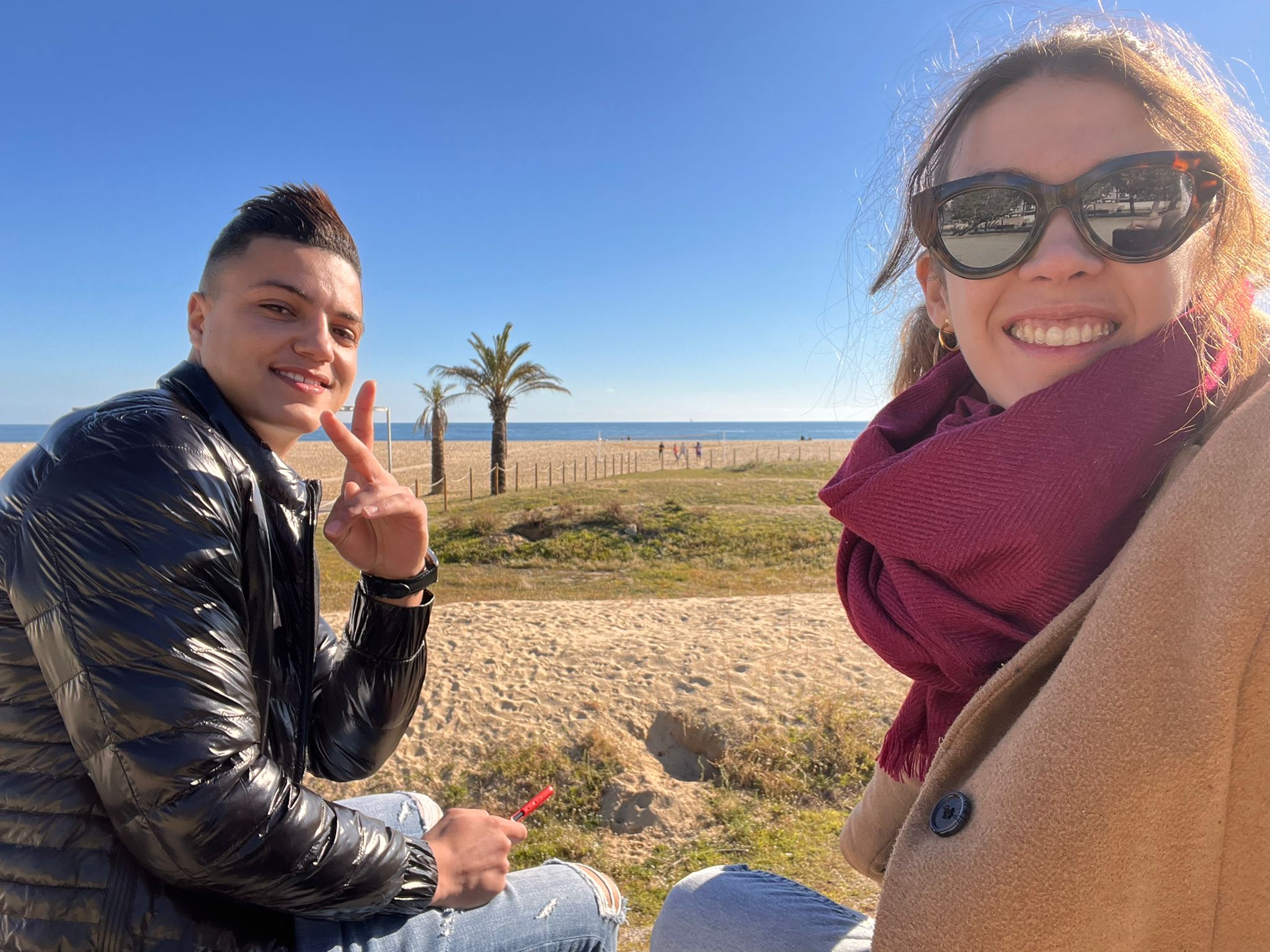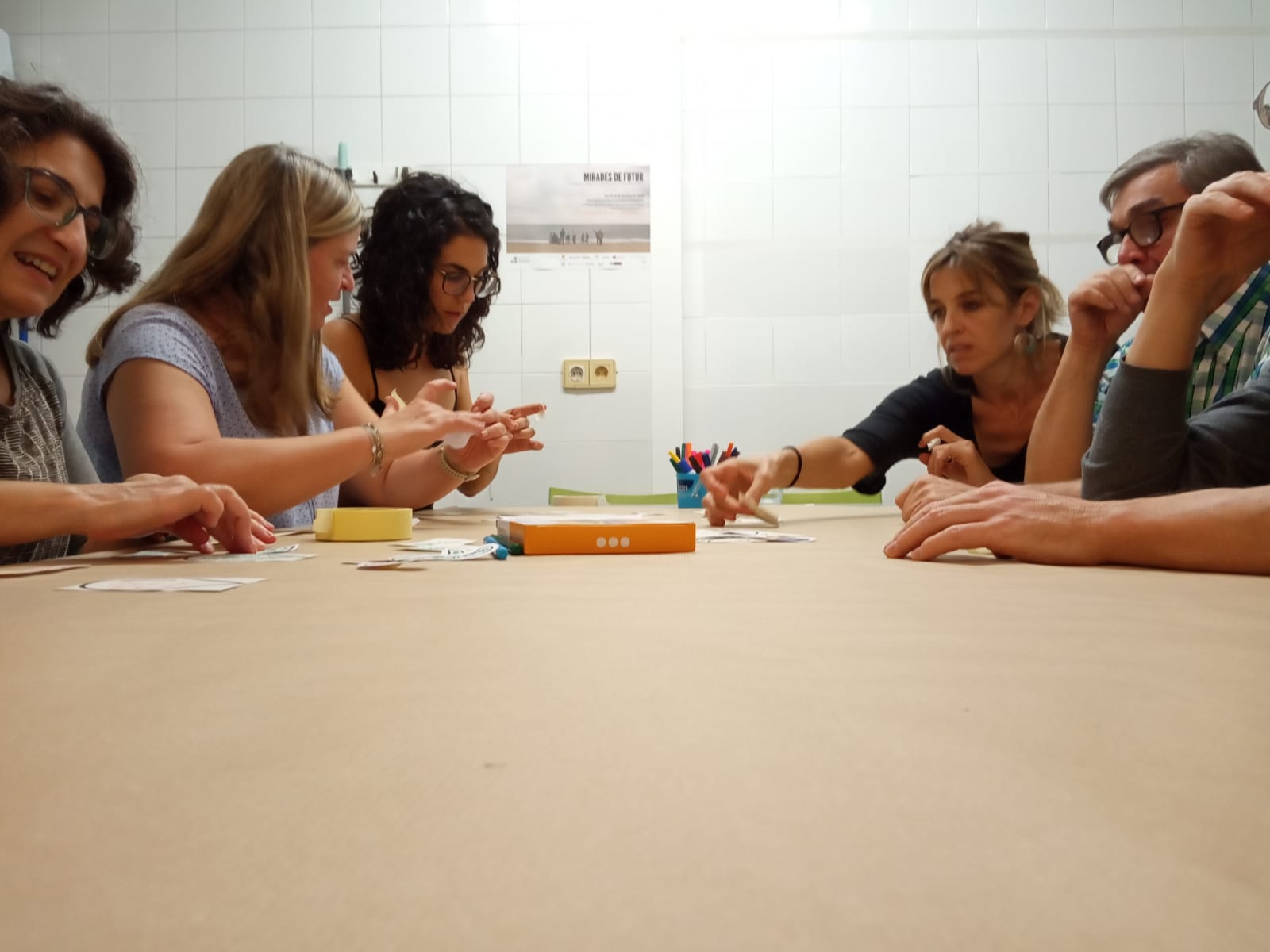Volunteering in Punt de Referència helps to empathize with young migrant and to raise awareness in the immediate environment
Clàudia Frontino, Agència Talaia
How can I accompany a young person who has migrated? What is my role as a volunteer mentor? What do I do if I don’t know how to accompany? Is it a good idea to involve my family? These are frequently asked questions by those starting a mentoring or volunteering period. As it happens, when such a process begins, doubts about one’s own abilities when it comes to accompanying young people in and out of care without a family network, are normal.To find out in detail the feelings and opinions of those who participate in Punt de Referència’s programs, and to improve the training and support model offered, we have commissioned a study from DEP Institute on the effects it has on volunteers’ participation in Referents mentoring project.
Next, we present the main conclusions of the study, which indicate how the perceptions and attitudes of volunteers change because of the accompaniment process. If you wish to access the full study click here.
To understand how the study was designed and the results obtained, it is necessary to first point out the three areas into which it was divided, and which refer to the various impacts that participation in Referents project may have for volunteers:
- Community area: about the effects from a communal, social, or individual point of view in a society.
- Interpersonal area: the effects it has on volunteers from the point of view of how we communicate or relate to others.
- Personal area: what benefits does volunteering have for the individual with respect to himself/herself?
Community area: empathy and awareness
One of the relevant conclusions of the study is that participating in Punt de Referència’s volunteer program helps to better understand the situation, challenges and difficulties faced by youth in and out of care to emancipate themselves, whether in legal and administrative or cultural and religious matters. It also contributes to detect racist attitudes and behaviours, both their own and those of society. It also helps to generate social awareness in the environment and, to a lesser degree, to participate in associations or social events.
All of this is important because often, from the outside, ignorance causes a lack of empathy and, consequently, an absence of action, recognition of the other, prejudice, etc. The study shows that people who participate as volunteers become aware of many aspects that make life difficult for youth in and out of care, incorporating this new knowledge into their daily lives. For example, there are those who claim to have discussed their volunteering experience with family and friends, others who find similarities between youngsters who appear in the news and young people from Punt de Referència’s mentoring project.
 “Every time I hear of a tragedy, I immediately think that it could have been him… Volunteering is useful for placing what is a political or geopolitical problem in a personal level and seeing that it is affecting specific people. And thus, you go from valuing it from a theoretical or abstract perspective to a more personal, empathetic point of view”.
“Every time I hear of a tragedy, I immediately think that it could have been him… Volunteering is useful for placing what is a political or geopolitical problem in a personal level and seeing that it is affecting specific people. And thus, you go from valuing it from a theoretical or abstract perspective to a more personal, empathetic point of view”.
In addition, one of the highlights of this area is that people who participate as volunteers react more to racist or discriminatory comments and confront them.
Interpersonal area: listening and accompanying
 Regarding this area, the study points out that volunteers learn to adapt communication according to the moment of the person in front of them, establishing relationships based on empathy and respect, overcoming age, cultural or religious differences. It also shows the work they do to not provide solutions or not try to change the other person’s way of thinking, as well as respect silence.
Regarding this area, the study points out that volunteers learn to adapt communication according to the moment of the person in front of them, establishing relationships based on empathy and respect, overcoming age, cultural or religious differences. It also shows the work they do to not provide solutions or not try to change the other person’s way of thinking, as well as respect silence.
“I dare say that what helped me was knowing how to listen, giving time and silence, and understanding that our respective rhythms of conversation are not the same”.
Finally, it should be noted that the fact that being a mentor helps to change perspectives towards an equal relationship is highly valued, far from the idea of charity or a certain paternalism. It means going from the idea of helping to the idea of accompanying or, to “walk side by side”, as it is said in the study.
Personal area: reflections and changes

The last area explored by the study is in a more personal field, referring to changes in the perceptions of the people who volunteer. Broadly speaking, this section highlights those volunteers having participated in Punt de Referència’s projects, minimize their own problems. Some of the aspects that stand out in this area, and which are dealt with indirectly, are:
Self-assurance
Better adaptability and flexibility facing changing situations
Being more patient and gaining long-term vision
Minimizing problems
Rearranging the scale of values in communal or family terms
Self-knowledge
“It has also given me assurance. I thought I wouldn’t know how to do it. And I wanted to do it all at once… I was very afraid of screwing up, saying anything…”.
Conclusions
Volunteering is a journey to review oneself, to learn and listen. Accompanying youth in and out of care is a complex task and, at the same time, enriching and transforming. Whether because of what changes outside or inside oneself, volunteers who have participated in the study recognize that they have become aware of the difficulties and obstacles of these youngsters and, at the same time, have incorporated new behaviours. Listening and pausing, pointing out and reproaching racist behaviour, acknowledging the place one occupies when accompanying, creating supportive relationships… The study has collected a whole set of lessons learned and reflections, which can be of help to other people participating in Referents project new volunteer programs, as well to Punt de Referència’s professional team to improve processes in the future.
